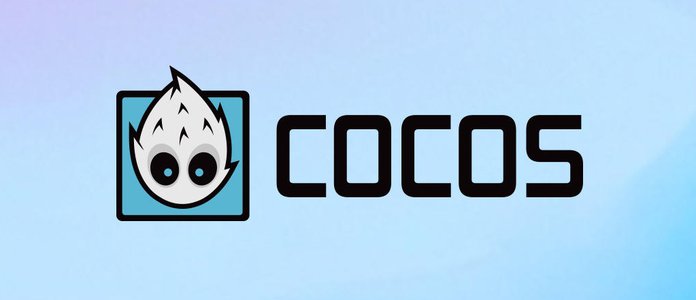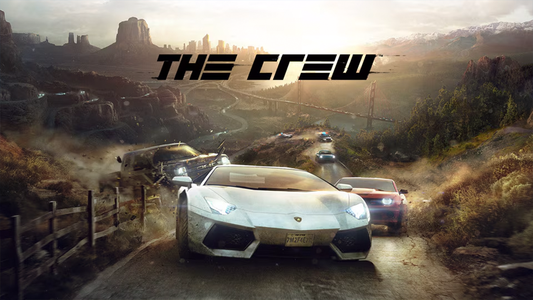In 2008, Microsoft launched Xbox Live Community Games -- a service for the Xbox 360 that allowed developers to develop games and sell them directly to players after a simple peer review process. The program, which came to be known as Xbox Live Indie Games, had a lot of promise; it launched alongside a flexible new development environment called XNA that allowed devs to use off-the-shelf Xbox 360 hardware to make games on a regular Windows PC. Both newcomers and old hands flocked to the service. In the end, the XBLIG never seemed to get the respect it deserved, and while a handful of developers were staunch supporters -- and a smaller handful even sold millions of games -- neither the service nor XNA survived the generational transition. What happened to the developers who made their way on XBLIG? What are their takeaways, now that the service has been all but abandoned? Inspired by a tweet from a developer counted as one of the XBLIG success stories, we decided to find out.
Would be really interesting to see a list of former XBLIG devs who are still making games & see how they've progressed.
— Robert Boyd (@werezompire) October 29, 2014What was XBLIG?
In the words of developers, what was Xbox Live Indie Games? "XBLIG was the fastest and least burdensome way to make the games," says Radiangames' Luke Schneider, who arrived on the platform with a desire to create arcade-style console titles. At the time, he says, "XBLIG was a cool new thing that I hoped would take off in a big way." "It wasn't without issues, but in terms of cleanliness and functionality, it was exactly what I'd been waiting for," says Ska Studios' James Silva, award-winning developer of XBLIG hit I MAED A GAM3 W1TH Z0MBIES 1N IT!!!1. He poured his energy into the platform, and won Microsoft's Dream Build Play competition in 2007.
"It was a dream come true, to make my original games for a powerful, popular home console."
"It was a dream come true, to make my original games for a powerful, popular home console. The first time I got my graphics to deploy and show up on an Xbox 360, it pretty much blew my mind," says Serious Sam Double D developer Nathan Fouts, who left Sunset Overdrive studio Insomniac Games to pursue independent development and became a staunch supporter of XBLIG, with a launch game in the form of Weapon of Choice. "XBLIG was an unrivaled platform for student, hobbyist and indie console development, offering unprecedented opportunity for developers of any size to make console games instantly available to millions of gamers," Silva says.
"XBLIG was an amazing experiment on Microsoft's part -- I don't know how a company of its size had the agility to try something this novel."
"Being able to make a console game in a weekend and make it available to millions is something that never existed before XBLIG, and doesn't exist apart from XBLIG," he adds. "If you want to make a console game, make a console game. XBLIG gave you that access. Nothing else gives you that access." "XBLIG was an amazing experiment on Microsoft's part -- I don't know how a company of its size had the agility to try something this novel. This was the premier console of its generation, allowing amateurs to publish their own games to Xbox Live for the cost of $99 per year," says Ian Stocker, developer of Escape Goat 2. Putting it as simply as possible, Xbox Live Indie Games offered "security that I could release my stuff when it was finished with little compromise," says Matt James Verran, of Hermitgames, who supported the platform up till this September with Delta.  Delta
Delta
Getting started with XBLIG
The accessibility of the development tools and their ease of use mixed with a readymade distribution channel pulled developers toward XBLIG. "I'd always had the desire to make video games at the back of my mind but hadn't really done anything with that desire for the first couple of decades of my life," says Zeboyd Games' Robert Boyd. "When Microsoft announced that they were going to make it possible for anyone to make a game for their system, release it online, and make money off of it, I thought 'Now's as good a chance as any!'" Boyd left his teaching job and became a full-time RPG developer; Cthulhu Saves the World was an early hit, and his studio ended up completing the Penny Arcade Adventures series after Hothead Games ceased development on it. Insomniac veteran Nathan Fouts came to XBLIG from quite the opposite direction: "After seeing the early, big success of Geometry Wars on XBLA, I thought it was time to leave triple-A after nearly a decade of work."
"It was obvious to me right away that there was a huge opportunity there, because it was a very open marketplace that had a huge amount of users looking at it."
Adam Mowery, whose Curse of the Crescent Isle was a charming and challenging NES throwback, "started developing for XBLIG because I wanted to make a game on a console since I was a kid," he says. XBLIG made that possible in ways that no other platform could. Thomas Steinke, on the other hand, looked at the size of the potential opportunity, and analyzed what would sell: "It became apparent to me that people were really invested in their avatars, yet MS had done practically nothing with them," he says, speaking of the Mii-like 3D characters Microsoft added to Xbox Live in 2008. He made a game called Avatar Paintball to satisfy the shooter-loving Xbox Live audience -- and reaped the rewards. "It was obvious to me right away that there was a huge opportunity there, because it was a very open marketplace that had a huge amount of users looking at it," he says.  Avatar Paintball
Avatar Paintball
The XNA toolset made the difference
"I had tried and failed making games with other languages, like Java and C++, and with other frameworks but the combination of XNA and C# was the combination that finally made sense to me," says Mowery. The easy-to-use XNA toolset was very appealing to beginners like Mowery, but even experienced coders like Fouts found it advantageous: "after a year of engine work on my own, XNA was announced, and it was miles better," he says. Many continued to use it even after Microsoft ended support; Stocker still makes his games in it. "My next game, Soulcaster 3, is also in XNA. I just can't shake the addiction," he says. "What it does best is let me rapidly prototype stuff and make changes, and the code can be really messy without it being the end of the world," Stocker says. "XNA is still my favorite framework. I'm hoping something better comes along, because XNA is no longer being supported -- though MonoGame and FNA offer a new future for the framework as an open source entity," he goes on to say. "The best thing about XNA is that it uses C# as its base language, which is now my favorite language of all that I've used," says Schneider, who now develops for other consoles and mobile platforms.
"XNA was, and still is, incredible. So well designed and engineered, it's a yardstick against which any other SDK could be measured (and they usually fall short)."
"XNA was, and still is, incredible. So well designed and engineered, it's a yardstick against which any other SDK could be measured (and they usually fall short). It catapulted our development years ahead of building our own tech," Fouts says. "I tried Unity and other frameworks/engines in the past couple of years and I think XNA kinda spoiled me with how quickly you can get things up and running," says Mowery. In fact, XNA was extremely beginner-friendly: "I knew very little about programming beyond some of the rudimentary basics, and yet I was able to learn how to use C# and XNA with relative ease. It certainly didn't hurt that the XNA community was active at the time and more than willing to help out beginners," Boyd says. Verran looks at it from a totally opposite perspective; but even still, he respects what Microsoft achieved. "I was quite happy making stuff with C++. Porting to XNA was just a hurdle to enable me to release on console. Having said that, it was nicely thought out and pretty easy to use."
The downsides
The tool and its marketplace had notorious downsides, however. For one, it was only really easy to make games for the Xbox 360 and Windows before tools like MonoGame came along. And Microsoft rarely promoted the work of Xbox Live Indie Games developers -- forcing them to take things into their own hands. "It fell victim to a lot of stupidity: a lot of people and outlets declared it a failure for not being a strong contender to the iPhone App Store,
No tags.





































